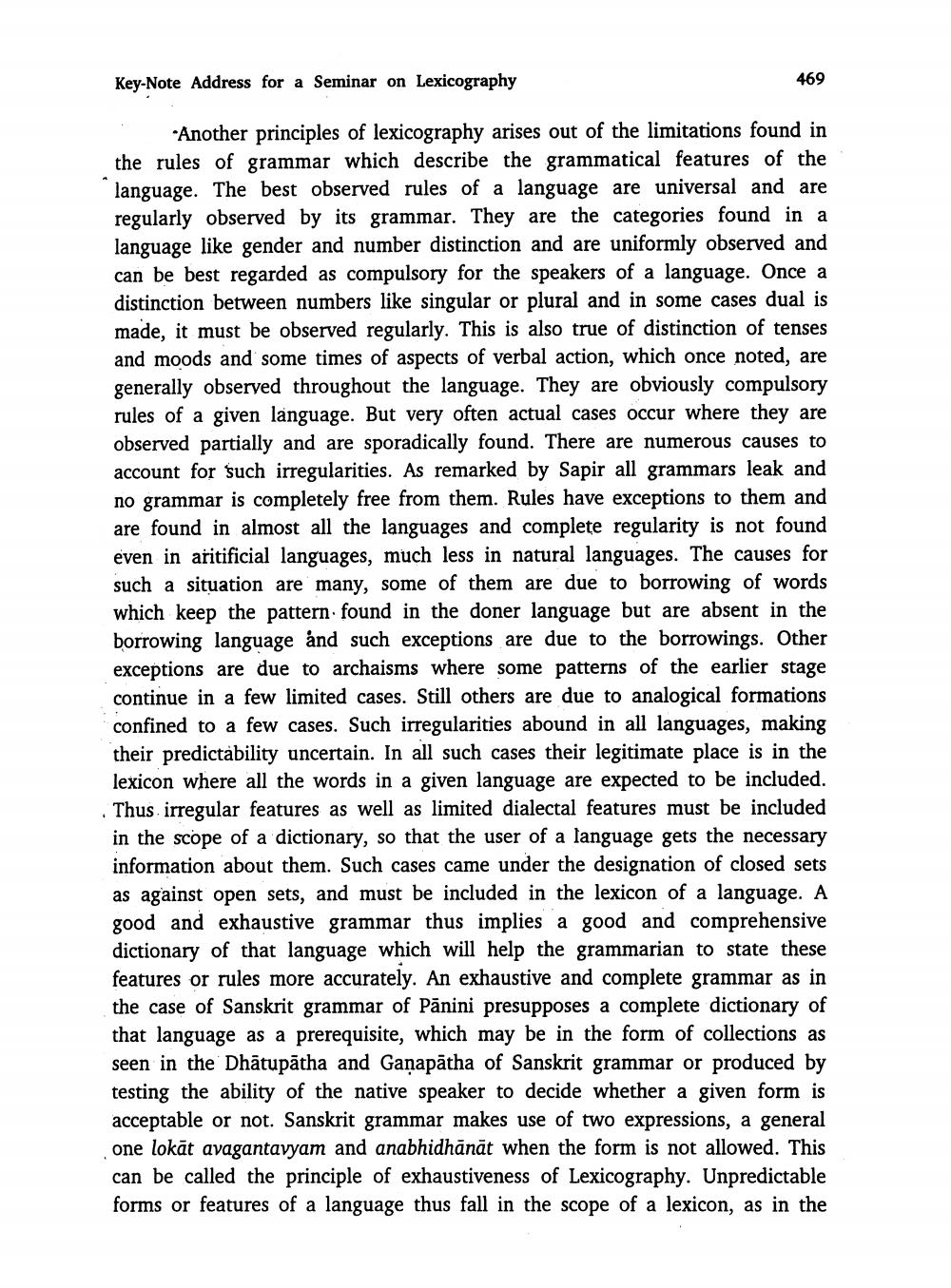________________
Key-Note Address for a Seminar on Lexicography
469
•Another principles of lexicography arises out of the limitations found in the rules of grammar which describe the grammatical features of the language. The best observed rules of a language are universal and are regularly observed by its grammar. They are the categories found in a language like gender and number distinction and are uniformly observed and can be best regarded as compulsory for the speakers of a language. Once a distinction between numbers like singular or plural and in some cases dual is made, it must be observed regularly. This is also true of distinction of tenses and moods and some times of aspects of verbal action, which once noted, are generally observed throughout the language. They are obviously compulsory rules of a given language. But very often actual cases occur where they are observed partially and are sporadically found. There are numerous causes to account for such irregularities. As remarked by Sapir all grammars leak and no grammar is completely free from them. Rules have exceptions to them and are found in almost all the languages and complete regularity is not found even in aritificial languages, much less in natural languages. The causes for such a situation are many, some of them are due to borrowing of words which keep the pattern. found in the doner language but are absent in the borrowing language and such exceptions are due to the borrowings. Other exceptions are due to archaisms where some patterns of the earlier stage continue in a few limited cases. Still others are due to analogical formations confined to a few cases. Such irregularities abound in all languages, making their predictability uncertain. In all such cases their legitimate place is in the lexicon where all the words in a given language are expected to be included. Thus irregular features as well as limited dialectal features must be included in the scope of a dictionary, so that the user of a language gets the necessary information about them. Such cases came under the designation of closed sets as against open sets, and must be included in the lexicon of a languag good and exhaustive grammar thus implies a good and comprehensive dictionary of that language which will help the grammarian to state these features or rules more accurately. An exhaustive and complete grammar as in the case of Sanskrit grammar of Pānini presupposes a complete dictionary of that language as a prerequisite, which may be in the form of collections as seen in the Dhātupātha and Ganapātha of Sanskrit grammar or produced by testing the ability of the native speaker to decide whether a given form is acceptable or not. Sanskrit grammar makes use of two expressions, a general one lokāt avagantavyam and anabhidhānāt when the form is not allowed. This can be called the principle of exhaustiveness of Lexicography. Unpredictable forms or features of a language thus fall in the scope of a lexicon, as in the




